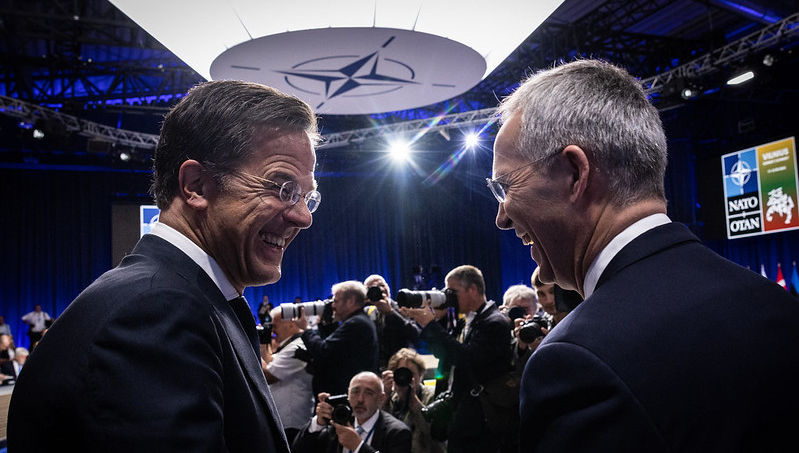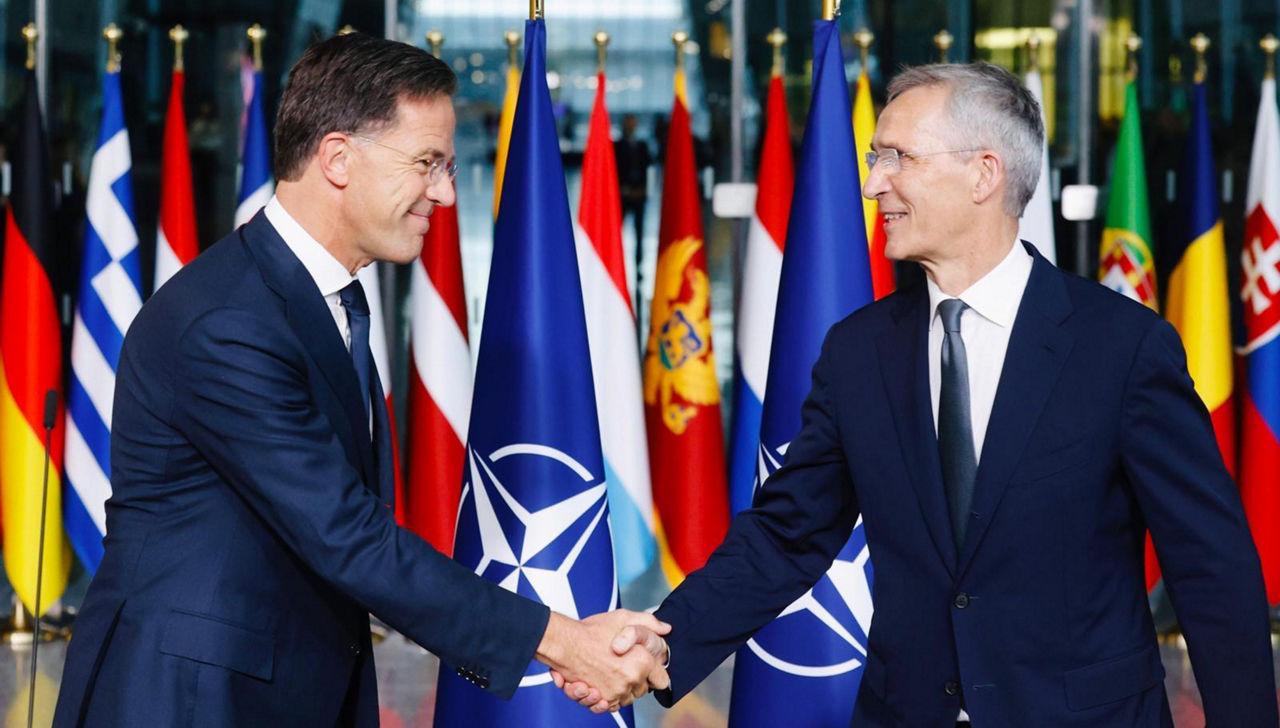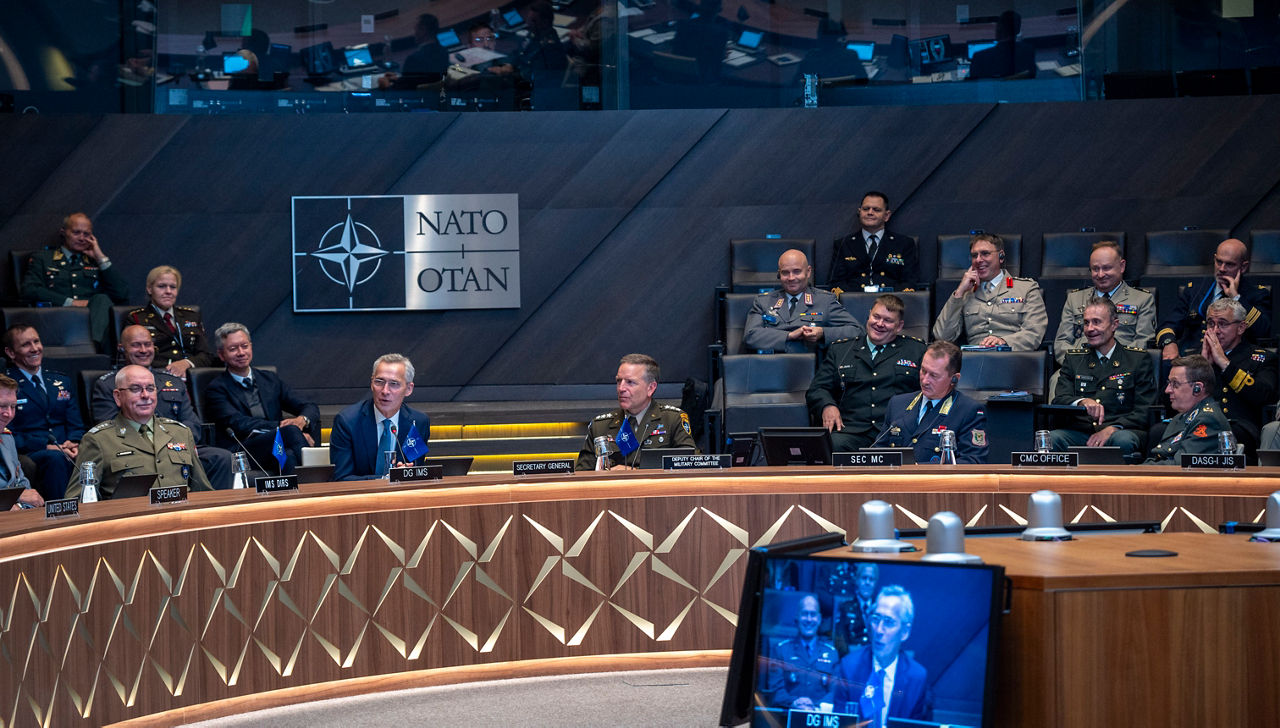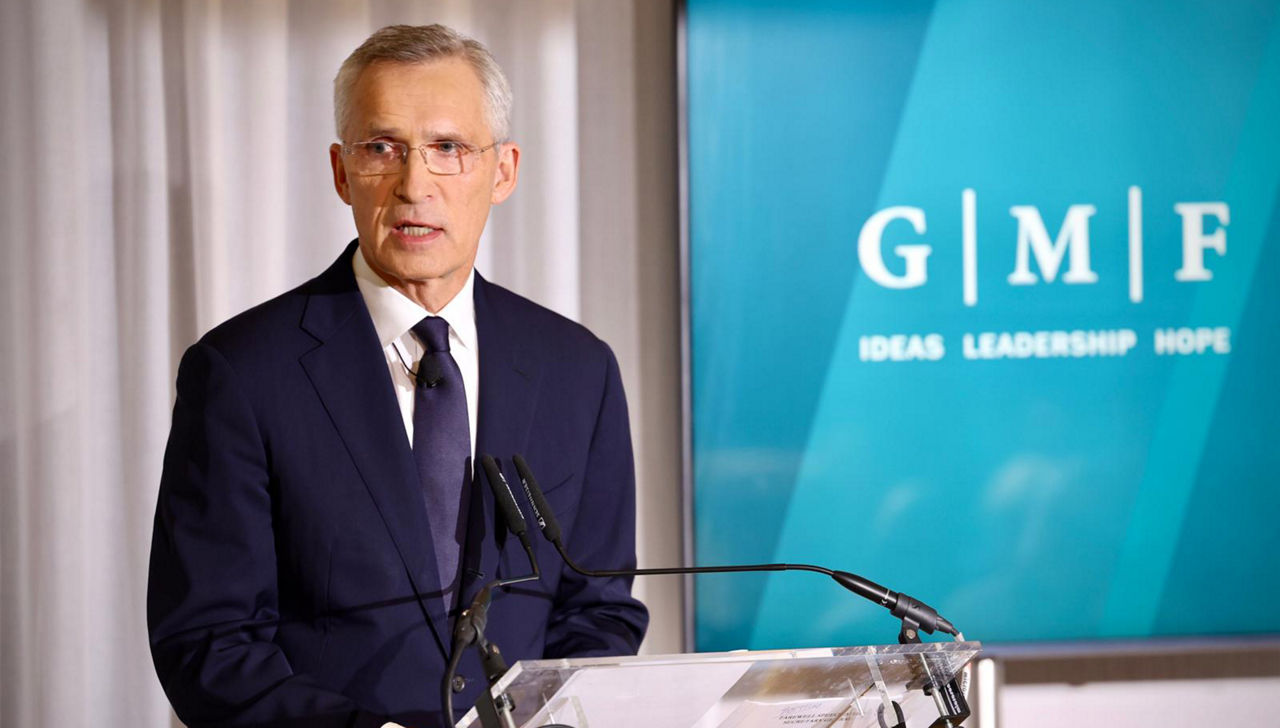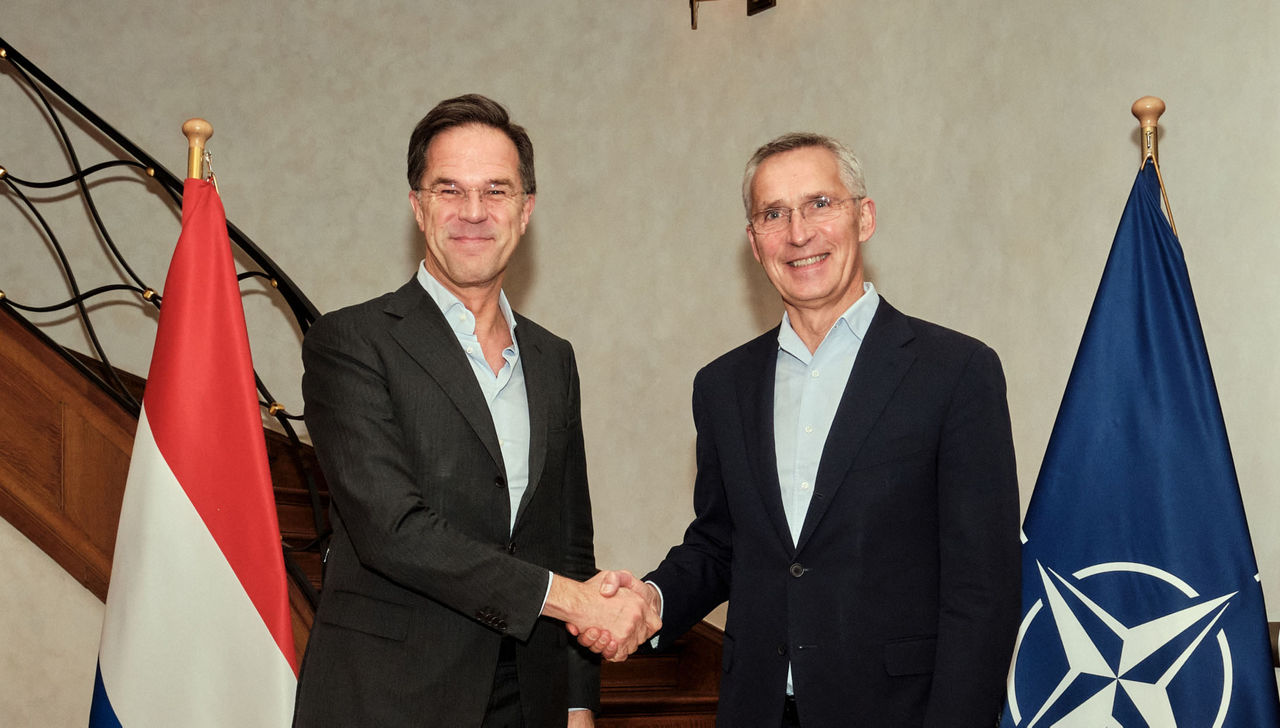Download NATO’s broadcast-quality video content free of charge

Log in
NATO MULTIMEDIA ACCOUNT
Access NATO’s broadcast-quality video content free of charge

Check your inbox and enter verification code
You have successfully created your account
From now on you can download videos from our website
Subscribe to our newsletter
If you would also like to subscribe to the newsletter and receive our latest updates, click on the button below.
Enter the email address you registered with and we will send you a code to reset your password.
Didn't receive a code? Send new Code
The password must be at least 12 characters long, no spaces, include upper/lowercase letters, numbers and symbols.
Your password has been updated
Click the button to return to the page you were on and log in with your new password.
NATO Secretary General
Updated: 01 October 2024
The Secretary General is the Alliance’s top international civil servant. This person is responsible for steering the process of consultation and decision-making in the Alliance and ensuring that decisions are implemented.
- The Secretary General is NATO's top international civil servant and has three principal roles.
- Chair of all major committees, responsible for steering discussions, facilitating the decision-making process and ensuring that decisions are implemented.
- Principal spokesperson for the Organization.
- Head of the International Staff, whose role it is to support the Secretary General directly and indirectly.
- The person is nominated by member governments for an initial period of four years, which can be extended by mutual consent.
- The post is currently held by Mark Rutte, the former Dutch Prime Minister, who took up his responsibilities on 1 October 2024.
Three principal responsibilities
Chair of the North Atlantic Council and other key bodies
First and foremost, the Secretary General chairs the North Atlantic Council - the Alliance's principal political decision-making body - as well as other senior decision-making committees. These include the Nuclear Planning Group, the NATO-Ukraine Council, the NATO-Russia Council and the Euro-Atlantic Partnership Council. Additionally, the Secretary General chairs the NATO-Georgia Commission.
Above and beyond the role of chair, the Secretary General has the authority to propose items for discussion and use their good offices in case of disputes between member states. They act as a decision facilitator, leading and guiding the process of consensus-building and decision-making throughout the Alliance.
In order to facilitate this process, the Secretary General maintains direct contact with Heads of State and Government, and Foreign and Defence Ministers in NATO and partner countries. This entails regular visits to NATO and partner countries, as well as bilateral meetings with senior national officials when they visit NATO Headquarters.
Effectively, their role allows them to exert some influence on the decision-making process while respecting the fundamental principle that the authority for taking decisions is invested only in the member governments themselves.
Principal spokesperson
The Secretary General is also the principal spokesperson of the Alliance and represents the Alliance in public on behalf of the member countries, reflecting their common positions on political issues.
They also represent NATO vis-à-vis other international organisations as well as to the media and the public at large. To this end the Secretary General regularly holds press briefings and conferences as well as public lectures and speeches.
Head of the International Staff
Third and lastly, the Secretary General is the senior executive officer of the NATO International Staff, responsible for making staff appointments and overseeing its work.
Support to the Secretary General
In their day-to-day work, the Secretary General is directly supported by a Private Office and a Deputy Secretary General, who assists the Secretary General and replaces them in their absence. The Deputy Secretary General is also the chair of a number of senior committees, ad-hoc groups and working groups.
More generally speaking, the entire International Staff at NATO Headquarters supports the Secretary General, either directly or indirectly.
The selection process
The Secretary General is a senior political figure from a NATO member country, appointed by member states for a four-year term. The selection is carried through informal diplomatic consultations among member countries, which put forward candidates for the post.
No decision is confirmed until consensus is reached on one candidate. At the end of their term, the incumbent might be offered to stay on.
The position has traditionally been held by a European senior political figure.


